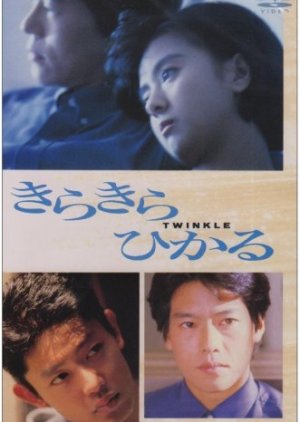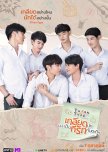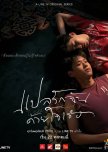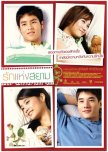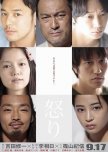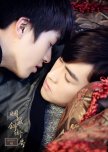
Jsme v roce 1992 a v japonském filmu se řeší sňatek z rozumu, manželství ve lži. Jsem překvapen otevřeností a tím, že se tento svazek obrazně nelynčuje, nedehonestuje a nenabízí se filmové řešení, "jak by to mělo být správně". Snímek je zajímavý, vlastně nebýt toho stylu, telefonů, aut, účesů, bych klidně uvěřil, že bylo natočeno i nyní nebo jen před páry lety a ne skoro před třiceti. Herectví výborné, především postav Shoko a Kon Fujishimy, celkový dojem překvapivě velmi dobrý a ještě chci poděkovat karcikarlovi za cz titulky.
Was this review helpful to you?

For his part, Mutsuki Kishida (Toyokawa Etsushi - 'Beautiful Rain', 2012) is a handsome, emphatically homosexual doctor with a boyfriend, the beautiful university student Kon (Tsutsui Michitaka - 'Kimi to Ita Natsu', 1994).
In a heteronormative and patriarchal society where appearances are of great importance, both must satisfy their worried parents, so they enter into a marriage of convenience. Even though she knows about her husband's sexuality, each of them finds in the other the perfect partner for a fake marriage.
On the one hand, the marriage of convenience would be important for Mutsuki for his career as a doctor, while at the same time it could be perfect for him to hide his homosexuality in a society like Japan; However, there is genuine affection between the doctor and his wife, as they find some comfort with each other.
However, external pressures weigh on the newlyweds; for example, parents' questions about when there will be a grandchild. As Shoko says: "My comfortable, carefree marriage was as fun as playing at home, but it came at a price after all."
Of course, the parents of the newlyweds know the nature of their own child, but not that of the spouse, and at first the marriage manages to please them. And while the newlyweds hope, in their own way, to live happily ever after, they inevitably come face to face with the fact that no marriage, real or simulated, is a fairy tale.
Although Shoko accepts Mutsuki's relationship with Kon, the young couple will face tough tests, especially when Shoko's parents discover the falsehood of the marriage.
Neither partner seemed to have high expectations about it, and Shoko said, "It was good to have marriages like ours. You didn't expect much, you didn't want much. You lost nothing, there was nothing to fear.
Written and directed by Matsuoka Joji ('Shinya Shokudo 2', 2011), the psychological and LGBT+-themed drama 'Kira Kira Hikaru' was the winner of the Golden Hugo Award for Best Film at the 29th Chicago International Film Festival 1993, while Etsushi Toyokawa won the New Star of the Year Award at the 16th Japanese Academy Awards (1992 Films).
With a rather slow pace, the script adapts the book of the same name written by Kaori Eguni, known for her novels "Reisei to jônetsu no aida" ("Between Calmness and Passion", "Sweet Little Lies", "The Mamiya Brother" and "Tokyo Tower".
The search for connection, trying to fit into social standards, having to pretend in a society that is intolerant of homosexuals, isolation even when you are surrounded by people who are supposed to know and love you, family relationships, urban alienation, These are some of the themes explored in the feature film.
The performance of Hiroko Yakushimaru stands out, playing a depressed young woman who fights against alcohol problems, loneliness, and against what society expects of a young woman: getting married, having a baby, etc. Even though Shoko knew that Mutsuki could never love her the way she wanted, she really tried to make it work.
Her friend and confidant does not help her, telling her that having a baby will help her "calm down" even though she knows that her husband is gay and living in a fake marriage.
With a somewhat open closure as the director opted for people to create their own ending, the marriage that is already built on a fragile foundation and seems to break under the pressures of parents and society and personal weaknesses, finally the three protagonists find a kind of solution.
Despite the difficulties, they come to see that there is a bond and manage to hold on to it. Amidst the demands of submitting to gender roles and collective duties, the three main characters find happiness in their own oddities.
"I would have liked to have done a lot more to develop the relationship between Mitsuki and Kon, because the few scenes they have together show a lot of potential and chemistry between the two."
In my opinion, the book and the movie complement each other well. The complexity of the characters is a bit lacking in the book, but the characters' flaws are more evident in the film adaptation.
Starting off with a happy vibe, in the second part of the film the plot takes a rather sad and dark turn, but somehow manages to come out on the other side, but not without making the viewer suffer. It is a transition of humor that can entertain and, above all, make viewers reflect.
Was this review helpful to you?

